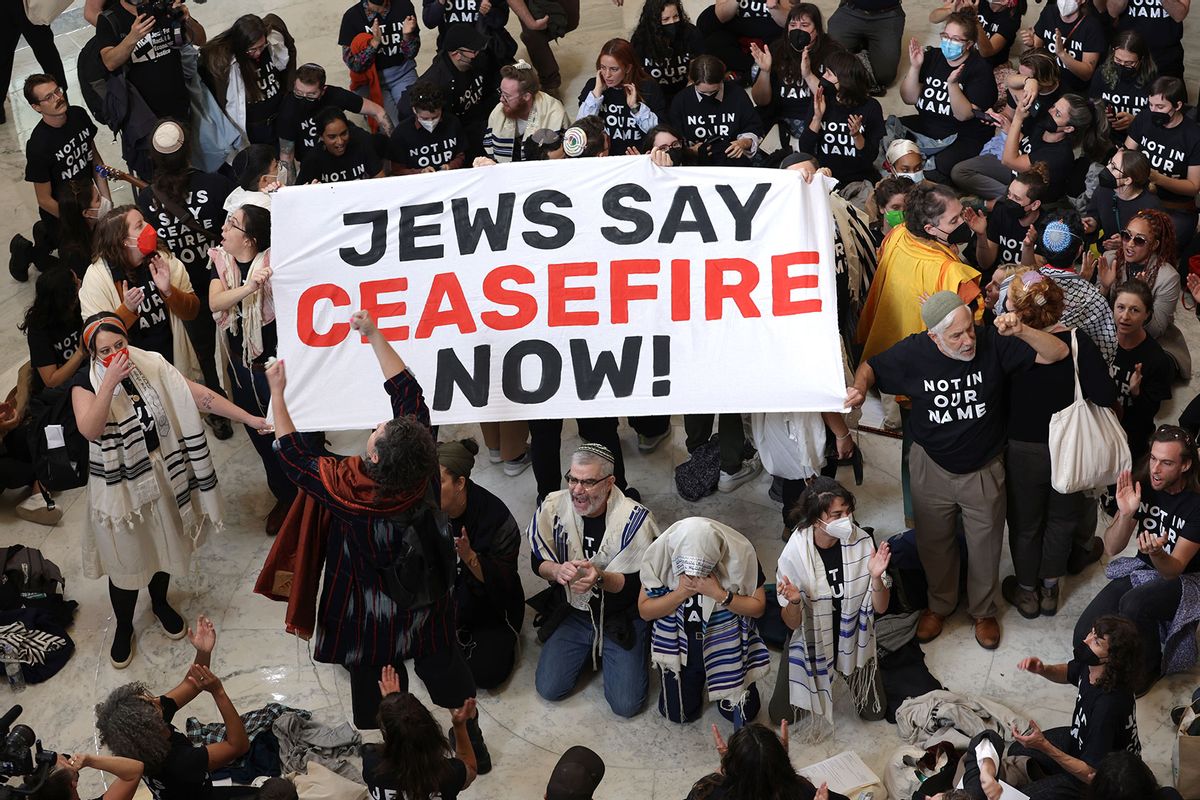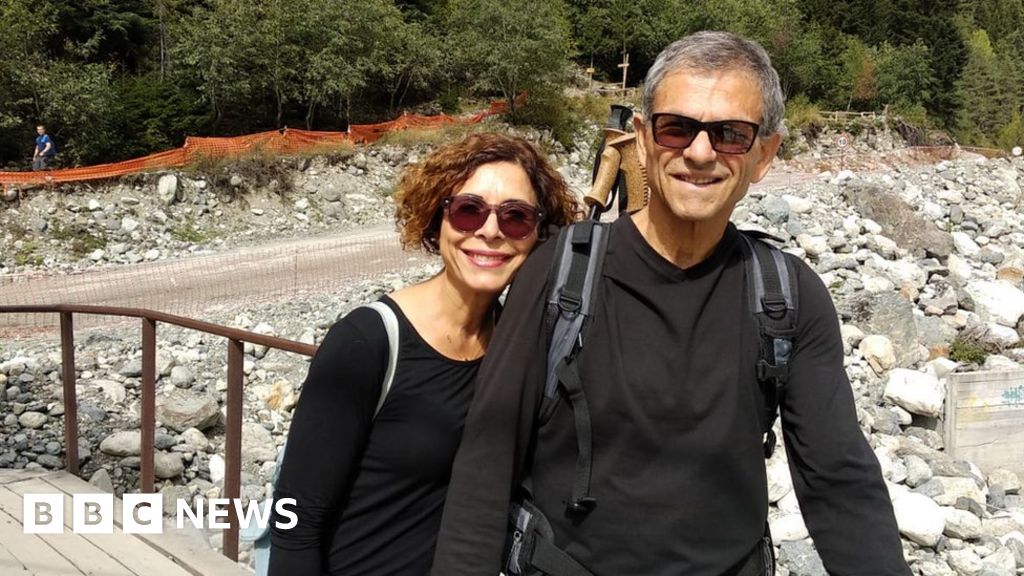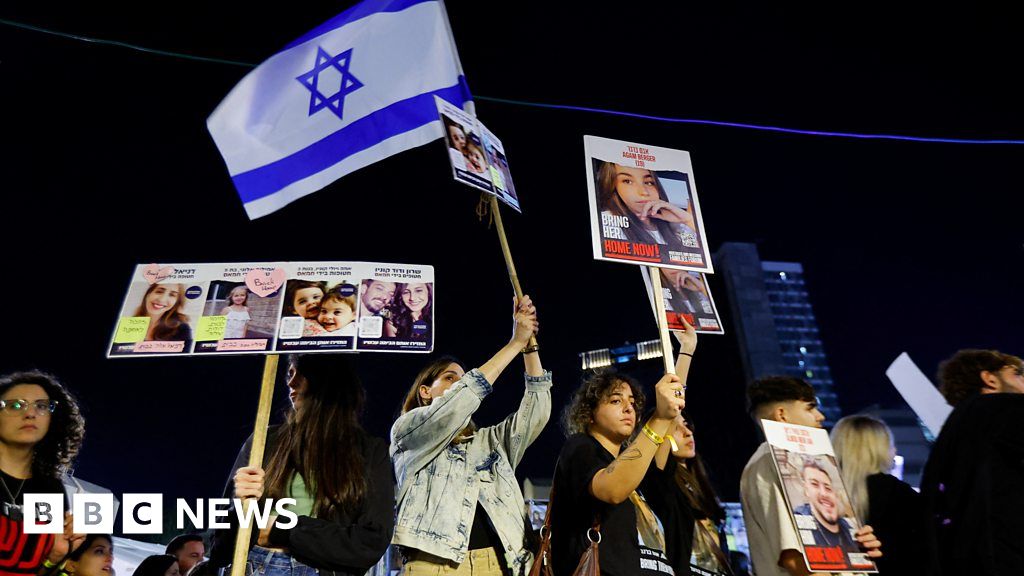Nytimes
In a Poignant Moment, Israelis Welcome Some Hostages Home
K.Wilson3 months ago
It was a poignant moment for many. In the Hamas-led assault of Oct. 7 in southern Israel, armed assailants surged across the border from Gaza and killed about 1,200 people, the majority of them civilians, according to Israeli officials — making it the deadliest day in Israel’s 75-year-history. The assailants also took about 240 more as captives into the Palestinian coastal enclave. “It is permitted to feel joy and also to shed a tear. That’s human,” said Yoni Asher, 37, in a video recording soon after he was reunited with his wife, Doron Katz Asher, 34, and their daughters, Raz, 4, and Aviv, 2. Ms. Katz Asher and the girls were kidnapped while visiting Ms. Katz Asher’s mother in Nir Oz, a pastoral kibbutz, or communal village, near the Gaza border. “But I am not celebrating and I won’t celebrate until the last of the hostages are returned,” Mr. Asher said, adding, “From today, the families of the hostages are my new family.” Many Israelis stayed glued to television screens all afternoon and evening, catching first glimpses of those being released through the windows of the Red Cross ambulances transporting them across the border from Gaza into Egypt, then watching their first steps as they emerged from captivity into freedom. The Israeli authorities only confirmed their identities once they had been liberated. Astonished, the nation watched as Hanna Katzir, 76, a grandmother of six from Kibbutz Nir Oz who usually uses a walker, was helped on unsteady feet out of an ambulance. Islamic Jihad, an armed Palestinian group that participated in the Oct. 7 assault, had recently claimed that Ms. Katzir died in captivity, and said it would provide evidence but never did. Even Ms. Katzir’s relatives were surprised to hear that she was alive when the Israeli authorities informed them late Thursday that she was on the list to be freed on Friday, according to a niece, Dalit Katzenellenbogen. Echoing the mixed feelings of many, Ms. Katzenellenbogen said soon after her aunt’s release that she felt “happiness for Hanna’s return from captivity but also concern about her physical and mental health.” Like many of the hostages, Ms. Katzir, the daughter of Holocaust survivors, is returning to a very different life. Her husband, Rami Katzir, was killed in the attack on Nir Oz. Her son, Elad, 47, was also kidnapped and remains in Gaza. And like all the residents of the ravaged communities along the border, Ms. Katzir will have no home to go back to for the foreseeable future. Twelve of the 13 Israeli hostages freed on Friday had been seized from Nir Oz. The 13th was one of five taken from Nirim, another kibbutz along the Gaza border. Nir Oz was one of the worst hit communities. About a quarter of its roughly 400 residents were killed or abducted. At a hotel in Eilat where many of the residents of Nir Oz are staying, after their evacuation from the border area, elation was tempered by a wider feeling of loss. “There are kids here without parents, parents without kids, and grandparents with grandchildren but no parents,” said Larry Butler, 73, a Nir Oz resident who survived the attack. Founded by the pioneers of socialist labor Zionism in 1955, seven years after the establishment of the state of Israel, the wheat and potato fields of Nir Oz stretch up to the security fence that Israel constructed around the Palestinian coastal enclave, and that was breached in about 30 locations on Oct. 7. Beyond the fence rise the apartment buildings, water towers and minarets of the Palestinian village of Abasan. Elad Katzir was born in Nir Oz. A farmer in charge of irrigation systems and a member of the kibbutz’s fire crew and emergency team, he had long felt unprotected. After a deadly Israeli three-week offensive against Hamas in Gaza in response to Palestinian rocket fire, which ended in January of 2009 with a shaky cease-fire, he had a nagging feeling of something missed or incomplete. Driving through the lush fields that month with this reporter, he would only stop the car behind clumps of trees or bushes as cover in case of sniper fire. “I do not feel any victory,” Mr. Katzir said at the time. “I still do not feel safe.” Ms. Katzenellenbogen, his cousin, who lives in Tel Aviv, said on Friday night that she remained concerned for Mr. Katzir and the other captives still in Gaza, and noted that Israeli soldiers were on the ground there. “I hope the war will end soon,” she added, “for the Israelis and for the Palestinians who do not support Hamas.” “We will have to learn how to keep living next to each other,” she said. “No one is going to disappear.” Adam Sella contributed reporting from Eilat, Israel.
Read the full article:https://www.nytimes.com/2023/11/24/world/middleeast/israel-hostages-return-home.html
0 Comments
0




















